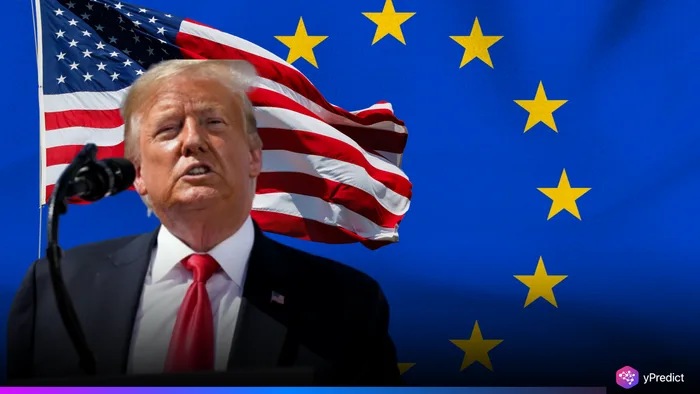
Anxiety is starting to build up between the United States and the European Union, but a European business coalition has been arguing Brussels should not retaliate unilaterally. As US President Donald Trump prepares to threaten unilateral tariffs against the key trading partners of the United States, firms across Europe are requesting calm instead of confrontation.
Major European corporations like Mercedes-Benz and luxury titan LVMH are lobbying against retaliation. Their position is simple: aggressive retaliation would result in a full-blown trade war and damage to European industry. Meanwhile, EU leaders have until July 9 to respond, and the clock is ticking on what they should do next.
Companies Push Back Against Targeting Iconic U.S. Goods
Executives from several leading companies are working behind the scenes to influence EU trade policy. They are specifically urging officials to exclude well-known American goods like bourbon from any retaliation list.
These firms fear that targeting iconic U.S. products could provoke a harsher response from Washington. More importantly, they argue that such actions will do more harm than good for European industry concerns. With global supply chains still fragile, businesses want predictability, not uncertainty.
EU Softens Tone Ahead of Deadline
While the European Commission continues to keep “all options” on the table, its tone has notably softened. Commission President Ursula von der Leyen said the EU is still aiming for a deal with the United States by July 9. She emphasized the goal is an agreement in principle, not escalation.
This measured approach is in stark contrast to Trump’s strategy. The U.S. administration plans to start sending formal letters today announcing tariff rates. Payments would begin on August 1, setting the stage for a tense month of diplomacy.
Trump Tariffs Worry Exporters Already Under Strain
Exporters are feeling the warning signs. According to the European Central Bank, increasing uncertainty regarding trade and the strength of the euro could have implications for exports. While the European Central Bank noted that the strong euro has helped to reduce inflation, it now risks damaging Europe’s overall competitiveness internationally.
The pressures of the economy from the global environment are certainly huge hurdles for companies to manage, and now Trump’s tariffs add more. A great deal of people think they will get even, and if Europe takes too extreme an action, it will worsen matters. The Trump tariffs are not a trivial matter of trade casually being amended they can shift European/US trade for several years into the future.
Business Leaders Call for an Innovation-Friendly Approach
The trade standoff is not the only concern among European firms. More than 45 organizations, including ASML, Airbus, and Mistral AI, have warned the EU about overregulating AI. They argue that current proposals could stifle innovation and set Europe back in the global tech race.
Much like their position on tariffs, businesses are asking EU policymakers to weigh long-term growth against short-term political reactions. Whether on AI or trade, the message remains the same: policy must not hurt competitiveness.
Conclusion
Europe now stands at a crossroads. On one side is the pressure to push back against U.S. tariffs. On the other is the need to protect European industry concerns and avoid damaging escalation.
With the deadline just days away, the EU’s next move will be critical. It could set the tone for U.S.-EU relations for the rest of the year. Business leaders are urging the bloc to stay focused on smart diplomacy, not emotional retaliation.







